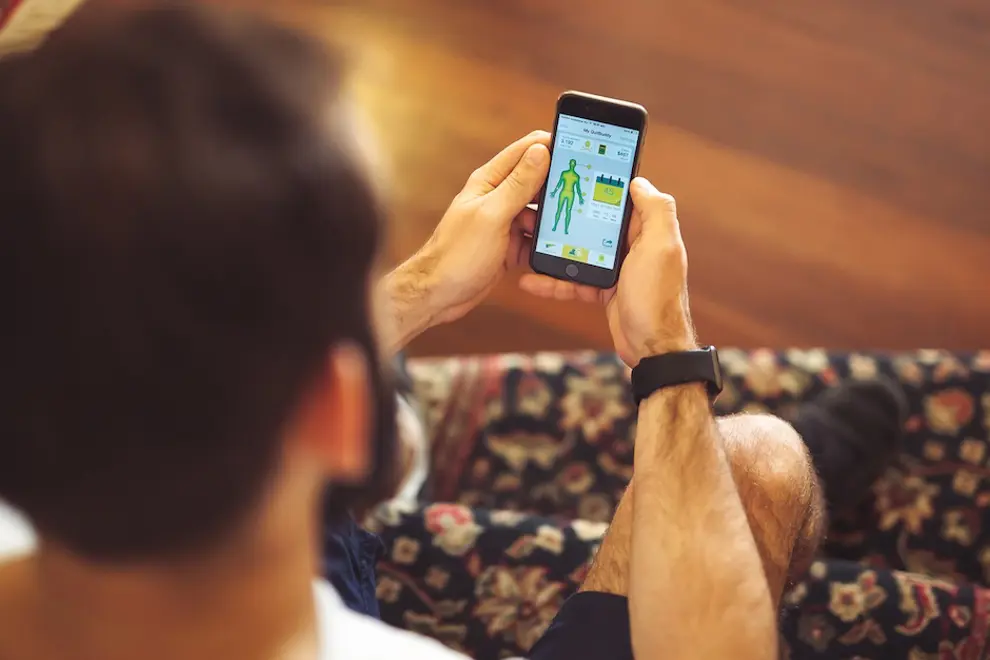Alex Paioff, 26, is the founder of Perth creative collective Pilerats, which encompasses a music website, record label, content production house and live music venue. Running your own business takes a huge amount of energy and focus - two things a long-term smoking addiction steals from you. Recently, Alex decided to drop the habit, and quit. But as he discovered, it ain’t always easy. Over to you, Alex:
The First Time
Everyone remembers his or her first time. I’m going to assume mine was under similar (regrettable) circumstances - drunk and trying to impress a girl. Mocking the situation and telling her I was smoking so that her own smokers’ breath didn’t taste as bad when we made out. Young and dumb, right? This was uncharacteristic of me at that stage of my life - at the time my overraching view was that smoking was something I’d never be a part of. To the point where I used to lock my own grandparents out of our house if they were smoking! Unfortunately, that one drunk moment became the beginning of a long battle - one that I didn’t even know I was walking into, and that I now look back on with constant regret.

Smoking was something I wanted no part of for so long, yet here I was.
Cigarette Sandwiches
It’s been five years since that night, and what started as a single shot to 'get the girl' evolved into a default mode for retreating from crowds in clubs when out, a way to find a quiet space to gather my thoughts, and a moment to take a break during or after work. This progressed to what my friends now call the ‘cigarette sandwich’ - which is eating a meal framed by a pre- and post-meal cigarette. This association became the second hardest factor in breaking the cycle. Happy moments, sad moments, ‘leave me alone’ moments, lunch, dinner, coffee and times with friends - all now times that I associate with rolling a delicious cigarette. That all adds up to a lot of smoking time.
My grandfather (a smoker) - someone who I have been eternally close with - recently had three strokes - one that left him permanently brain-damaged. Since the strokes, our relationship was never the same, and it brought my own smoking habit to the fore of my mind – with everything that had happened to my grandfather, it didn’t make sense that I would continue to tread this dirty, unsensible path.

Associating smoking with happy moments has been one of the hardest quitting obstacles I've faced.
Don't miss a beat with our FREE daily newsletter
So – I set 25 years old as the age at which I'd quit. Since turning 25, I’ve tried and failed on five different occasions to do so. However, my most recent stint has me sitting at three consecutive months clean, which means I’ve spent six out of the nine months we’ve had of 2015 so far, completely smoke-free. This is a result that I am proud and comfortable with, and even the times I’ve tried and failed, I feel I’ve learnt something useful – I’ve become more aware of what exactly makes me fail.
Losing Control Over Your Brain
One of the biggest breakthroughs I’ve had, and what drives my motivation to quit, has been reading about the effects smoking has on your brain’s ability to deal with addiction, in general. Any addiction. Having something that you crave (like smoking), and then satisfying that craving on a hourly, daily or weekly basis means you are satisfying a craving and thus changing the way your brain handles addiction. Your brain learns to give in too easy. Shopping, other drugs, unhealthy food, alcohol – you lose your ability to say no to a multitude of things when you smoke – not just the cigarettes. The idea of losing control over my brain scared me, and prompted me to reconsider things - what other areas in my life was my smoking having a negative impact on?
Translating Work Ethic to Health
As someone who leads a fairly stressful life – 12 hour work days, high pressure situations on the regular - it becomes easy to push decisions about your personal life / health aside. Being so emotionally drained makes it hard to even decide what to eat on a daily basis - decision fatigue is a thing! Recognising this – that I made zero time for myself - was also a big step that tied in with my quitting, as it forced me to consider what I was doing to my body and that, like I’d approach projects at the office, I need to plan and be ready for what I want to do. Which is live, obviously. Realising I needed to start exercising, eating healthy and developing an overall plan for how I was going to improve my body. Being aware that at the end of the day it’s going to be hardest, because that’s when I’m weakest. Seeing the positive effects of these factors can help in mitigate the devil on your shoulder.
Why I’m Writing This
Writing this post was important to me, because, at its home on our website Pilerats.com, it might actually have the potential to reach – and impact - someone exactly like me. I don’t know about you guys, but conventional quit campaigns don’t affect me – I don’t watch TV, any TV I watch is through the Internet - and regardless, they have never left a profound impact. It’s like the series The Walking Dead - you simply get desensitised to the ugliness, the graphic images. It’s all too easy to brush the people off in these ads as hired guns too, who don’t really smoke. Running a business myself, I understand that messages need to be tailored to small groups - not the masses. I’m feeling better then I have in years and would like to share some of the setbacks, hurdles and milestones that young people like me - who like to go to gigs, to go clubbing, that are just really social and are always around big groups of friends (probably smokers) - can look out for when they finally make the decision to give it away.

The Pilerats team. Want your workplace to be smoke-free? Make Smoking History has come up with a few ideas.
Take-Away Tips:
Do everything in your mental capacity to make it to three weeks. By the end of the third week your habits begin to change. You get used to the thought of saying ‘no’ when your friends do, you start to appreciate smelling nice, not feeling twice as hung-over as you need to be, and appreciating that the nasty cough you had is close to becoming a distant memory!
Never ever, under any circumstance, think that ‘just one’ is ok. This is a message many quit campaigns hammer home, and its for good reason. Each time I quit, the smoking gets kick-started again by one stupidly drunk night having one cig. Two weeks later it’s one cig again. In next to no time, the free-for-all-begins. It’s a lesson I’m only feeling comfortable in believing now I’m at Quit Attempt Four.
Get the Quit Buddy app. This thing is like a Tamagotchi for adults! Set your most vulnerable times and it will send you a message of support via push notification. It also tallie up how much money you’ve saved not smoking, as well as the changes in your body as they occur over the quit cycle.

The Quit Buddy app has been super helpful in the quitting process.
If you fail don’t be disheartened, enjoy that cigarette in your hand and be ready to make the commitment again. Each time I have stopped, I’ve lasted a little longer. Days at first, then weeks, then months - my next target is a year.
It’s all in your mind. You can have a cigarette, everyone can. You also do not need to have a cigarette despite how many urges tell you that without it you will surely not survive the day. Each time you say ‘no’, your willpower to say no also increases… and it becomes easier.
Something I picked up during Quit Attempt Three has proven to be one of the best mind tricks yet. I leave a packet of cigarette with my wallet and keys at home. Seeing a full packet of cigarettes in front of you on a daily basis, and then heading into work and taking the wallet and keys but not the cigarettes, means you already can tick off a win on the board for the day. This is extremely difficult to handle, but becomes drastically easier each day that passes, you learn to manage and be OK with your desire.
Make changes in your life and surroundings. Some people, myself included, respond well to a visual indictor of change. Cut your hair, shave your beard, buy a new outfit, re-arrange your room. Take some steps to make your surroundings different to signify the change on a subconscious level.
There is no doubt that making smoking history is one of the most challenging, self-induced life hurdles to overcome. At the same time, the feeling of success for conquering a deep-rooted addiction has positive effects on both your physical and mental outlook. Two things amidst a whole bunch of them I'd tell 20-year-old me while he tried to impress that girl.

I’ve spent six out of the nine months we’ve had of 2015 so far, completely smoke-free.
Jump onto makesmokinghistory.org.au to learn about more coping mechanisms, and to find quit tips that work for you. You can do it!

















